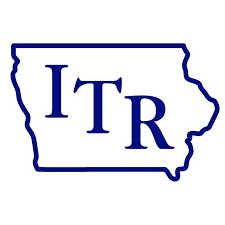Katz: Benefit by asking better questions

Bruce Katz of the Brookings Institution got his first look around Des Moines in May when he spoke at a breakfast event hosted by Capital Crossroads. The day after his departure, Katz said, he had breakfast with a friend who last traveled to Des Moines in 1972 for George McGovern’s presidential campaign.
“The first thing he said to me was, ‘I think I experienced a different Des Moines than you experienced,’ ” Katz said. “I didn’t see vestiges of 1972. What I saw was a vibrancy and vitality in the city that was really quite striking.”
Katz, founding director of Brookings’ Metropolitan Planning Program and co-author of the new book “The Metropolitan Revolution,” called it a distinctive place that has leveraged its assets well. In an earlier interview with the Business Record, he called downtown Des Moines “world class.” He considers Gray’s Lake a “game changer” for prospective workers mulling the recreational offerings.
It’s safe to say Katz was impressed with Des Moines during his first visit. He said the city should have no problem showing off what it has to a national audience. In his experience, Des Moines is known as an “insurance capital” and a capital city.
“Des Moines is competing in a pretty dramatic way. That’s understood,” he said. “You are on the national radar screen.”
However, Katz gives some simple advice on how to show the nation who we are during the caucuses — ask better questions of presidential candidates.
The government policy issues facing Iowa are different from what the rest of the country might think, Katz said. Since the caucuses provide Iowans an opportunity to ask face-to-face questions of presidential candidates concerning public policy, we should ask ourselves if those questions reflect Iowa’s priorities.
“To an outsider, it is perceived that those questions and issues will focus solely on agriculture,” Katz said. “This is understandable, but what are the state’s core issues? Not just to the rural portions of the state, but the urban portions as well, and how can those be put on the table? I can guarantee you that the candidates won’t even go there unless it’s raised.”
Doing this can also force candidates to take a stance on issues affecting most metropolitan areas across the country.
“Do more than just show them your restaurants and your revitalized downtown,” Katz said. “They should really be pressed to say where they stand on investment in infrastructure, job skills and transportation. The federal government is miserable on those topics. That is really the issue here — whether local leaders can put on the table the kinds of things all cities care about, of which Des Moines will have its own distinctive version.”










